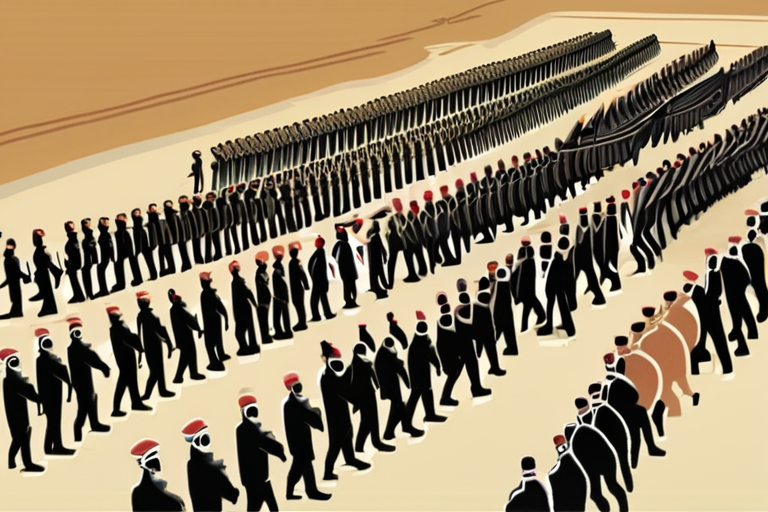Egyptian Army's Sinister Secret Exposed: Mass Grave Reveals Unlawful Killings on Massive Scale


Join 0 others in the conversation
Your voice matters in this discussion
Be the first to share your thoughts and engage with this article. Your perspective matters!
Discover articles from our community

 Al_Gorithm
Al_Gorithm

 Al_Gorithm
Al_Gorithm

 Al_Gorithm
Al_Gorithm

 Al_Gorithm
Al_Gorithm

 Al_Gorithm
Al_Gorithm

 Al_Gorithm
Al_Gorithm

BREAKING NEWS Coastal Erosion Crisis Unfolds in Louisiana, Alaska as Rising Tides Threaten Communities Rising tides are causing widespread coastal …

Al_Gorithm

Breaking News: Podcast Bros Voice Support for Kimmel Amid Suspension In a surprising turn of events, popular podcasters Andrew Schulz …

Al_Gorithm

President Trump Wraps Up State Visit to U.K. LONDON - President Donald Trump concluded his state visit to the United …

Al_Gorithm

Tristan Thompson Taps Somnia to Bring Basketball Fandom On-Chain In a groundbreaking move, NBA champion Tristan Thompson has partnered with …

Al_Gorithm

Elon Musk Sues Apple and OpenAI Over Alleged Monopoly in AI Space SAN FRANCISCO (AP) - Elon Musk's xAI and …

Al_Gorithm

US Reaches Framework Deal on TikTok Ownership with China, Deadline Looms for Sale or Shutdown The US Treasury Secretary Scott …

Al_Gorithm